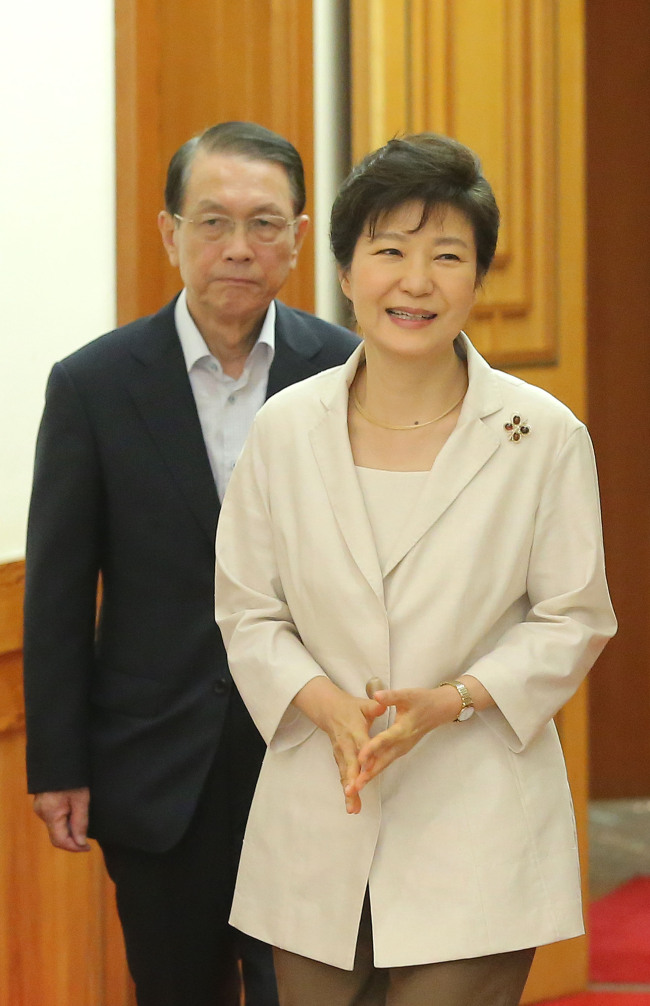President Park Geun-hye returns to office on Monday after her much-debated five-day summer vacation. As many expected, the president ended up staying in Cheong Wa Dae the whole time, saying she had no room left in her mind to go on a trip.
On a rare occasion, Park expressed her thoughts on her Facebook account last Tuesday, describing the past months as “a difficult and a long period of time.” She went on to say that she was not able to leave the presidential office thinking that she may have “a load of work remaining” to manage during her break.
 |
President Park Geun-hye. (Yonhap) |
Park reportedly was briefed on a wide range of issues by her aides, spending her entire downtime coming up with a new vision, new ideas to restore her leadership, and gearing up her reform drive. Summer breaks for Korean presidents usually offer time for relaxation to gather their thoughts during difficult periods. So too for Park, summer vacation this year was important as it was expected to offer her a chance to create a new vision to achieve a political breakthrough and win back the public’s support.
According to sources and reports, the president is likely to deliver a message to the people on Tuesday while presiding over the first Cabinet meeting after her summer vacation. The economic revitalization is expected to be her focus in the second half of the year, as well as her unification drive. She is scheduled to host the first presidential meeting this week with experts named to devise ways to realize a peaceful unification of the two Koreas.
Expectations are growing of what the president’s other messages will be, and how much her words could comfort and encourage a nation still suffering after the ferry tragedy. The nation’s worst peace-time disaster killed more than 300, who were mostly teenagers on a school trip to Jejudo Island.
The political environment is quite favorable for Park to push her agendas in the second half of the year.
The ruling Saenuri Party clinched a parliamentary majority in a landslide victory in the July 30 by-elections. The governing party now holds 158 seats in the 300-seat National Assembly after winning 11 electorates in the by-elections held last Wednesday. With Saenuri taking more than a half of the parliamentary seats, some political commentators say that Park’s reform agendas as well as her economic revitalization plan will have smooth sailing. The election results also proved that both the government and the ruling party had obtained the voters’ support for Park’s economic stimulus packages, they said.
What’s better for Park is that her two major political opponents, former cochairmen of the main opposition New Politics Alliance for Democracy, also offered to resign, taking responsibility for the party’s crushing defeat in the election.
Despite the favorable situation, the president faces a bitter reality. Her ratings remain around 40 percent, the lowest since she took the office last year. Observers say that the election victories may have delighted Park, but it seems unclear whether the president has succeeded in winning the people’s support back.
By Cho Chung-un (
christory@heraldcorp.com)








